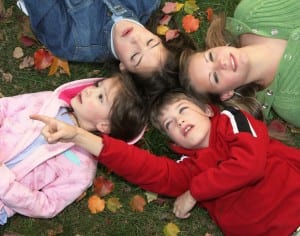Getting a Divorce? Helpful Tips and Guidelines to Assist Your Kids

There can be such upheaval, emotional and physical, during the process of divorce for all family members. Here are some tips to assist your family and your kids, as you process and adjust to your new reality, and work to move forward in a positive way.
1. It is so important that kids have predictable and consistent rituals and routines which create for them a comforting sense of calm and security. A child of divorce is continually in transition. Consider their regular routines and rituals – the ones they used to have and the ones they have now. Is your child getting lost in the shuffle, or can they count on helpful, loving, simple traditions? Talk with your child about the rituals they may be missing, and consider how to create new ones which will strengthen your connection with one another. Some examples could be, reading together at the end of the day, cooking together, praying together, special crafts, activities… The possibilities are endless and do not need to be costly.
2. As parents there is a natural inclination to want to fix a problem for our kids, and take away their distress. It is hard to see our kids hurting. Recognize that it can be healing for your child when you really try to listen to them, and recognize and validate their pain. Some examples of validating statements could be “that would be very disappointing/confusing for you”, “how sad”, “how difficult that would be”. When kids feel validated and understood they tend to open up and share their thoughts and feelings even more. John Gottman’s book, Raising an Emotionally Intelligent Child, helps parents learn to become effective ‘emotion coaches’ for their kids.
3. Another powerful, healing message you can convey to your child is giving them the absolute freedom and permission to love and enjoy time with both parents. It is very important that kids do not feel the need to ‘compartmentalize’ themselves for fear of hurting their parent. A parent who responds with sadness or hurt if their child had a great time with their mom or dad will create unnecessary feelings of guilt and betrayal for their child. One way to send this message is to be careful not to make any disparaging comments about the other parent in their child’s presence.
4. It is so important as a parent that you practice good self-care, and have a good support system beneath you with who you can share your grief, thoughts and feelings. It is not helpful to your child to view them as a confidente or buddy sharing with them everything about the marriage, and detailed reasons for the divorce. This practice can be destructive and painful to your child. As much as possible kids need to focus on kids’ concerns, rather than adult issues, that they have very little ability to impact or change.
5. There can be a sense that quiet, calm, ‘happy go lucky’ kids are not experiencing emotional duress about the divorce. All kids, regardless of their visible response, need an opportunity to process and work through issues about their parent’s divorce. Kids need to be secure in their parents’ continuous love for them, not internalize any self-blame about the divorce, and learn great coping strategies for managing their emotions in a healthy, constructive way. The Summit offers a six week support group for kids called Caring 4 Kids thru Divorce which addresses these issues within a faith based, fun setting. Watch for our summer dates!
The Summit provides therapy services for kids healing from divorce, parents needing support, family therapy, co-parenting assistance, and also in-depth marital assessments and couples counseling. Please let us know if we can be of service to you.
